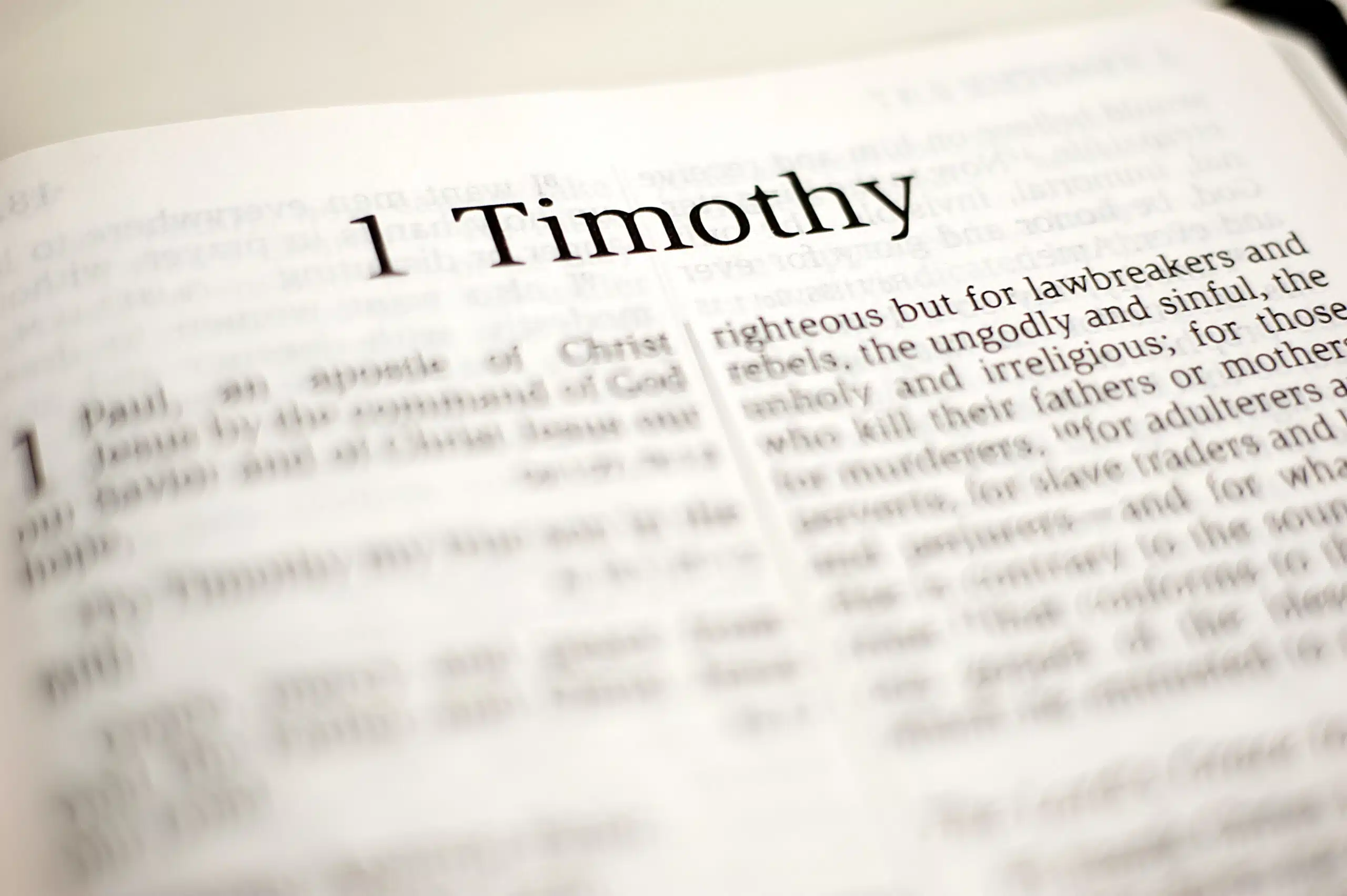Introduction
Unlike most of Paul’s epistles, which were written to churches, the First Epistle to Timothy was addressed to an individual—Timothy—who was not only Paul’s trusted co-worker in ministry but also a spiritual son (1 Timothy 1:2). This epistle is often categorized as a Pastoral Epistle, focusing more on church leadership, structure, and conduct than on doctrinal arguments.
Paul’s main concern in writing to Timothy was to instruct him on how the Church of God should be organized and function in a way that reflects God’s design (1 Timothy 3:15).
Key Themes of 1 Timothy
-
Guarding Against False Teaching
-
Conduct for Different Groups Within the Church
-
Qualifications for Church Leaders
-
Personal Instructions to Timothy
1. Guarding Against False Teaching
Paul urges Timothy to remain in Ephesus to combat the spread of false doctrine:
“As I urged you when I was going to Macedonia, remain at Ephesus so that you may charge certain persons not to teach any different doctrine…”
— 1 Timothy 1:3 (ESV)
The false teachings included:
-
Legalism regarding food and marriage (1 Timothy 4:1–3)
-
Speculations based on myths and genealogies (1 Timothy 1:4)
-
Asceticism and spiritual elitism
Paul categorizes such teachings as “doctrines of demons”, warning that they arise from insincere liars with seared consciences.
“Now the Spirit expressly says that in later times some will depart from the faith by devoting themselves to deceitful spirits and teachings of demons…”
— 1 Timothy 4:1 (ESV)
Theological Insight: This illustrates early Gnostic tendencies that undermined the goodness of creation and imposed unnecessary restrictions, something Paul consistently opposed (see also Colossians 2:20–23).
2. Conduct Within the Household of God
Paul provides practical instructions for how different groups within the church should behave.
a) Men in Worship
Men are instructed to lead in prayer with purity of heart:
“I desire then that in every place the men should pray, lifting holy hands without anger or quarreling…”
— 1 Timothy 2:8 (ESV)
b) Women in the Church
Women are encouraged to dress modestly and focus on godliness rather than outward adornment. They are not permitted to teach or assume authority over men in the public worship setting:
“…let a woman learn quietly with all submissiveness. I do not permit a woman to teach or to exercise authority over a man…”
— 1 Timothy 2:11–12 (ESV)
Note: These verses are widely debated theologically. Some interpret them as cultural, while others uphold them as normative. Paul roots this teaching in the creation order (1 Timothy 2:13), suggesting a theological rather than cultural rationale.
c) Widows and Family Support
Only genuine widows—those without family and over a certain age—were to be enrolled for church support (1 Timothy 5:3–16). Younger widows were encouraged to marry and manage households.
d) Elders and Youth
Younger people were to be exhorted respectfully. Older men were not to be rebuked harshly but treated as fathers (1 Timothy 5:1). Elders who sinned openly were to be rebuked publicly to deter others (1 Timothy 5:20).
e) Slaves and Masters
Christian slaves were to honor their masters, whether believers or not, so that God’s name would not be dishonored (1 Timothy 6:1–2).
f) Intercessory Prayer
The church is called to pray for all people, especially rulers, so that believers may lead peaceful lives in godliness:
“…that we may lead a peaceful and quiet life, godly and dignified in every way.”
— 1 Timothy 2:2 (ESV)
3. Qualifications for Church Leadership
Paul outlines rigorous qualifications for overseers (bishops) and deacons, emphasizing character, family management, and spiritual maturity:
“Therefore an overseer must be above reproach, the husband of one wife, sober-minded, self-controlled, respectable…”
— 1 Timothy 3:2 (ESV)
Key criteria include:
-
Above reproach
-
Faithful in marriage
-
Sober and self-controlled
-
Hospitable and able to teach
-
Not a lover of money or violent
-
Not a recent convert (to avoid pride)
-
Respected even by outsiders
Likewise, deacons must be dignified, not double-tongued, and faithful in all things (1 Timothy 3:8–13).
Theological Insight: The structure reinforces the integrity and moral leadership of the Church. Leadership is seen not just as function but as a form of spiritual stewardship.
4. Paul’s Personal Charge to Timothy
Paul encourages Timothy to embody the virtues required of a faithful servant of Christ.
-
Sincere faith and a clear conscience (1:5)
-
Diligence in personal holiness and godliness (4:7–8)
-
Being a godly example in speech, conduct, love, faith, and purity (4:12)
-
Avoid favoritism and hasty laying on of hands (5:21–22)
-
Pursue righteousness, godliness, faith, love, steadfastness, and gentleness (6:11)
“Fight the good fight of the faith. Take hold of the eternal life to which you were called…”
— 1 Timothy 6:12 (ESV)
Timothy is also warned to avoid love of money, disputes over words, and irreverent babble (6:10, 20).
Conclusion
Paul’s first letter to Timothy is a vital manual for church health and leadership. It emphasizes:
-
Guarding sound doctrine
-
Maintaining godly behavior within all segments of the church
-
Upholding biblical standards for leadership
-
Encouraging personal integrity in ministry
When these principles are observed, the Church becomes a “pillar and buttress of the truth” (1 Timothy 3:15), strong, respected, and effective in its mission.
“Grace be with you.”
— 1 Timothy 6:21b (ESV)
May this message shape our churches, our leadership, and our lives in Christ.
Shalom.









